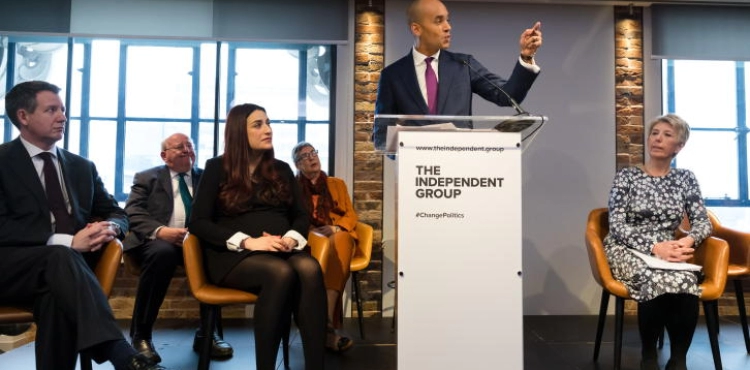Seven members of the British Labor Party announced in a press conference on Monday they had split from the biggest opposition party in the United Kingdom over the administration of its leader Jeremy Corbin for Brixt and accused him of not acting in the face of anti-Semitism.
Among the dissident MPs, the rising top legislator Shuka Omuna, who led a campaign to organize a second referendum that could stop Brikst, was also a potential candidate to lead the center-left party.
Omona called for a "middle" alternative in British politics, while MPs complained about what they considered to be the party´s far-right spin under the direction of Corbin.
"The bottom line is that politics is cracked, but not necessarily, so let´s change," Omona told a hastily prepared press conference in London.
The seven deputies will form an independent parliamentary group, undermining the authority of Corbin, who is trying to run his party in the midst of the highly divided BRICEST crisis.
Many Labor MPs, especially from Northern Ireland, chose to leave the EU in a 2016 referendum, but most of his deputies and members supported him.
The referendum also divided positions within the ruling Conservative Party, which now consists of two camps, the first pro-European moderate, and the other consisting of fierce supporters of the BRICCAST.
This internal rebellion is unlikely to affect the results of the next vote on the BRICST agreement that Teresa May wants, but pro-EU forces have welcomed the move.
Liberal Democratic leader Vince Kiebel said he was "open to working with people and open-minded groups to give the people the last say on BRICEST with the option of staying in the EU."
Corbin said his deputies´ decision "disappointed him."
"Now more than ever before is the time to bring people together to build a better future for all of us," he said, referring to the party´s good results in the last general election in 2017.
Corbin has been criticized by pro-European leaders for failing to push for a second referendum. Instead, Corbin asked May to negotiate a customs union with the EU to facilitate trade after BRICEST.
Corbin also criticized for months the way he handled allegations of anti-Semitism in the Labor Party, as well as his past ties with Palestinian factions.
"The decision was difficult, painful, but necessary," said Luciana Berger. She said the party had become "anti-Semitic in its institutions," adding that it was "ashamed and embarrassed" by its representation of the Labor Party.
She left behind a culture of "bullying, intolerance and intimidation".
Another deputy, Mike Gabbas, said he was "angry that the Labor Party´s approach was facilitating BRICEST." MP Chris Leslie said he was leaving the party "because of his betrayal of Europe."












